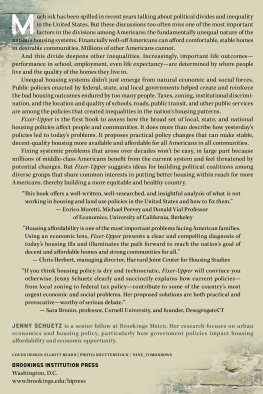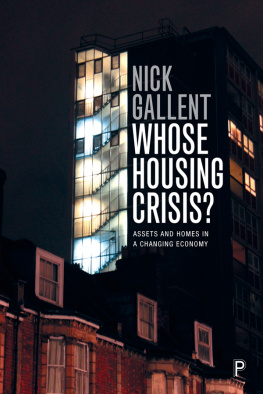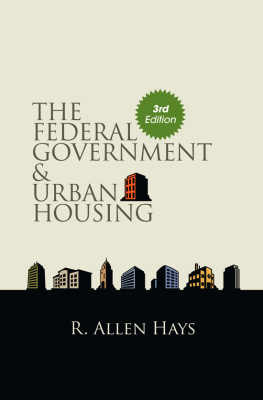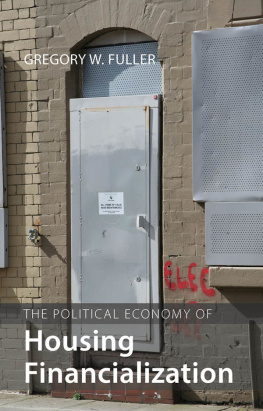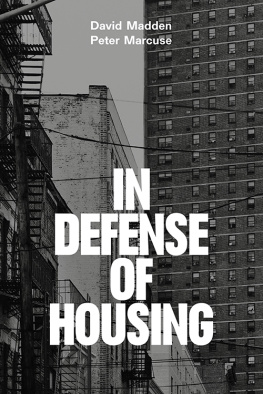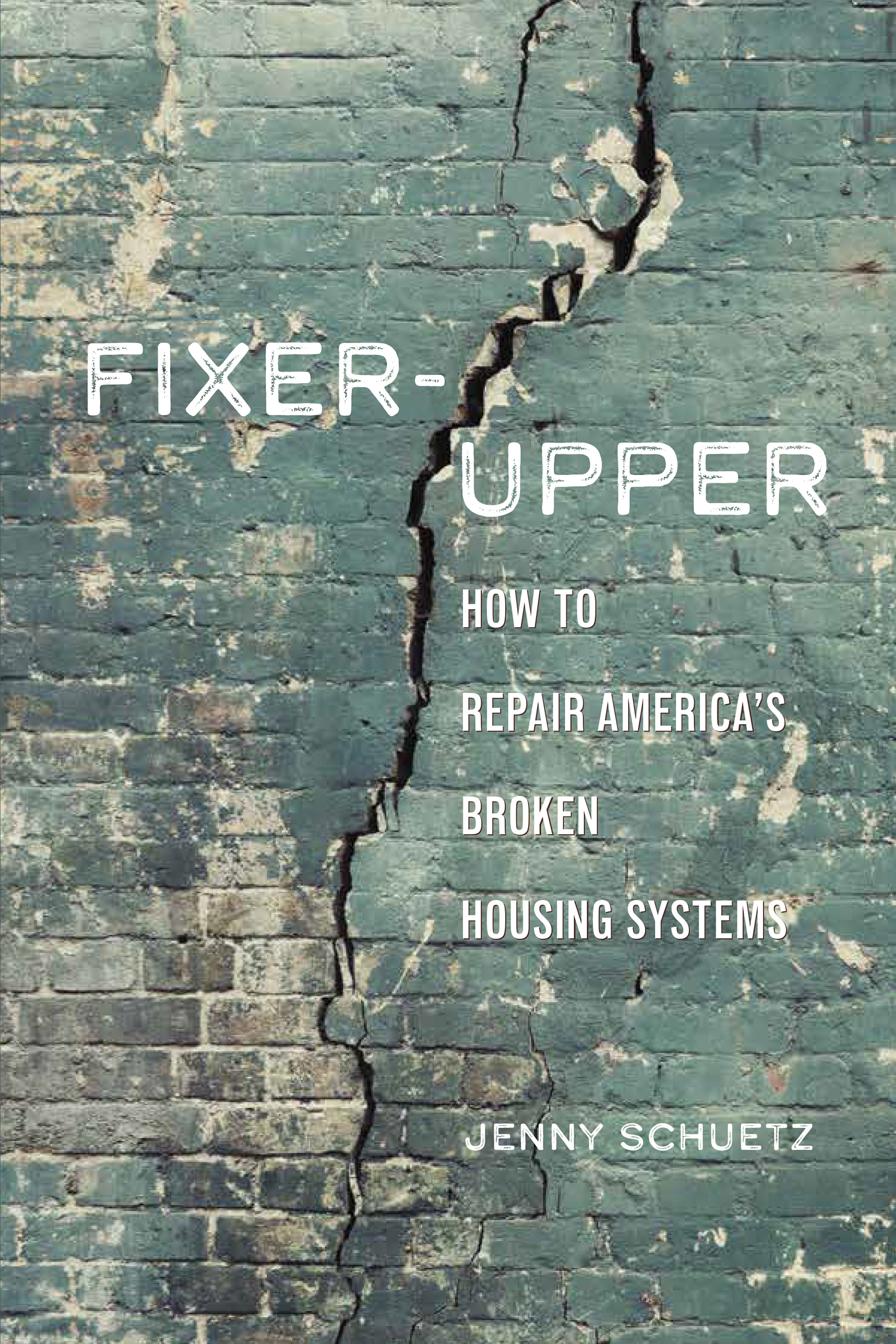Jenny Schuetz - Fixer-Upper: How to Repair Americas Broken Housing Systems
Here you can read online Jenny Schuetz - Fixer-Upper: How to Repair Americas Broken Housing Systems full text of the book (entire story) in english for free. Download pdf and epub, get meaning, cover and reviews about this ebook. year: 2022, publisher: Brookings Institution Press, genre: Politics. Description of the work, (preface) as well as reviews are available. Best literature library LitArk.com created for fans of good reading and offers a wide selection of genres:
Romance novel
Science fiction
Adventure
Detective
Science
History
Home and family
Prose
Art
Politics
Computer
Non-fiction
Religion
Business
Children
Humor
Choose a favorite category and find really read worthwhile books. Enjoy immersion in the world of imagination, feel the emotions of the characters or learn something new for yourself, make an fascinating discovery.
- Book:Fixer-Upper: How to Repair Americas Broken Housing Systems
- Author:
- Publisher:Brookings Institution Press
- Genre:
- Year:2022
- Rating:3 / 5
- Favourites:Add to favourites
- Your mark:
Fixer-Upper: How to Repair Americas Broken Housing Systems: summary, description and annotation
We offer to read an annotation, description, summary or preface (depends on what the author of the book "Fixer-Upper: How to Repair Americas Broken Housing Systems" wrote himself). If you haven't found the necessary information about the book — write in the comments, we will try to find it.
Practical ideas to provide affordable housing to more Americans
Much ink has been spilled in recent years talking about political divides and inequality in the United States. But these discussions too often miss one of the most important factors in the divisions among Americans: the fundamentally unequal nature of the nations housing systems. Financially well-off Americans can afford comfortable, stable homes in desirable communities. Millions of other Americans cannot.
And this divide deepens other inequalities. Increasingly, important life outcomesperformance in school, employment, even life expectancyare determined by where people live and the quality of homes they live in.
Unequal housing systems didnt just emerge from natural economic and social forces. Public policies enacted by federal, state, and local governments helped create and reinforce the bad housing outcomes endured by too many people. Taxes, zoning, institutional discrimination, and the location and quality of schools, roads, public transit, and other public services are among the policies that created inequalities in the nations housing patterns.
Fixer-Upper is the first book assessing how the broad set of local, state, and national housing policies affect people and communities. It does more than describe how yesterdays policies led to todays problems. It proposes practical policy changes than can make stable, decent-quality housing more available and affordable for all Americans in all communities.
Fixing systemic problems that arose over decades wont be easy, in large part because millions of middle-class Americans benefit from the current system and feel threatened by potential changes. But Fixer-Upper suggests ideas for building political coalitions among diverse groups that share common interests in putting better housing within reach for more Americans, building a more equitable and healthy country.
|Practical ideas to provide affordable housing to more Americans
Much ink has been spilled in recent years talking about political divides and inequality in the United States. But these discussions too often miss one of the most important factors in the divisions among Americans: the fundamentally unequal nature of the nations housing systems. Financially well-off Americans can afford comfortable, stable homes in desirable communities. Millions of other Americans cannot.
And this divide deepens other inequalities. Increasingly, important life outcomesperformance in school, employment, even life expectancyare determined by where people live and the quality of homes they live in.
Unequal housing systems didnt just emerge from natural economic and social forces. Public policies enacted by federal, state, and local governments helped create and reinforce the bad housing outcomes endured by too many people. Taxes, zoning, institutional discrimination, and the location and quality of schools, roads, public transit, and other public services are among the policies that created inequalities in the nations housing patterns.
Fixer-Upper is the first book assessing how the broad set of local, state, and national housing policies affect people and communities. It does more than describe how yesterdays policies led to todays problems. It proposes practical policy changes than can make stable, decent-quality housing more available and affordable for all Americans in all communities.
Fixing systemic problems that arose over decades wont be easy, in large part because millions of middle-class Americans benefit from the current system and feel threatened by potential changes. But...
Jenny Schuetz: author's other books
Who wrote Fixer-Upper: How to Repair Americas Broken Housing Systems? Find out the surname, the name of the author of the book and a list of all author's works by series.

